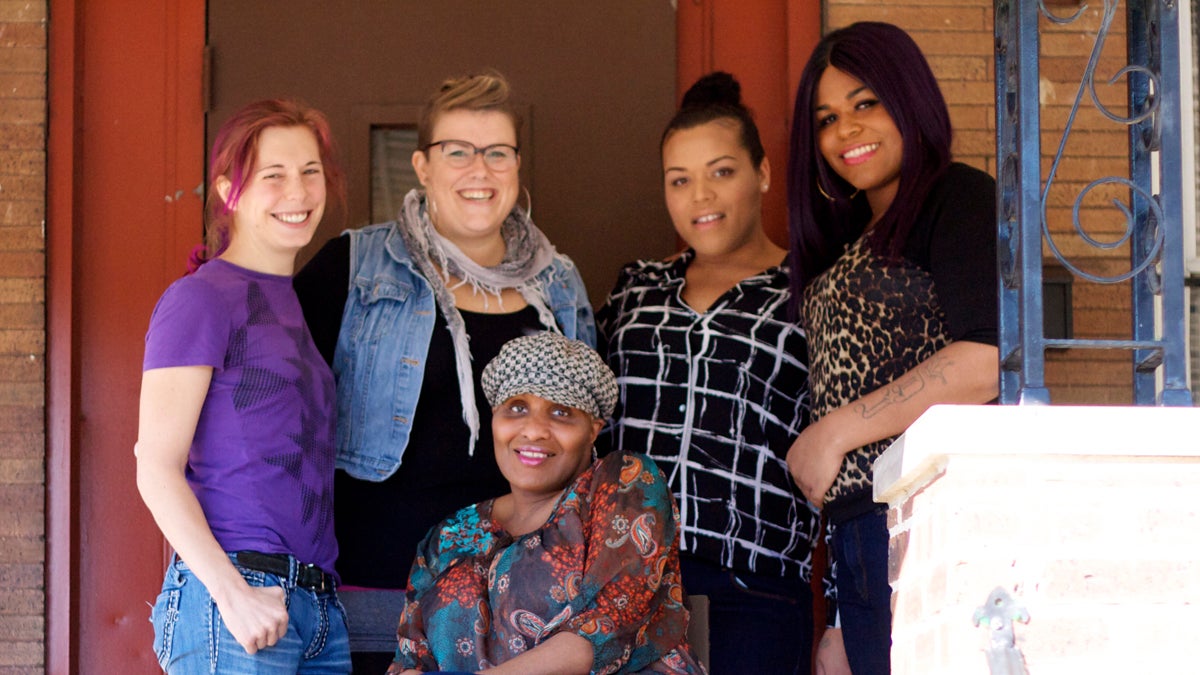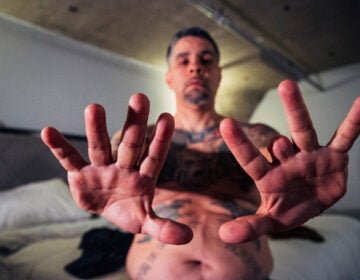Recovery program for transgender people creates culture of trust

Residents and staff on the porch of the Morris Home, located in Southwest Philadelphia. From left are Kai; Program Director Laura Sorensen; Nikki; Lauren; and Barbie, center. (Kyrie Greenberg/for NewsWorks)
Transgender people are more likely to battle substance abuse and homelessness. Helping some in this region along the road to recovery is Philadelphia’s Morris Home, the only U.S. in-patient recovery program exclusively focusing on trans people.
Many of Morris Home’s clients have complex histories with chronic illness and trauma. But everyone begins the program the same — with a good night’s rest.
“When people come in, the thing we’re most excited about is giving them a key to their room. For a lot of our folks, it’s been years since they’ve had a door that they could lock behind them that was their own space,” said program director Laura Sorensen.
Many trans people say they delay drug or alcohol treatment because they fear discrimination. Many of Morris Home’s staff is also transgender, easing communication between provider and client.Lauren, a client, said she felt uncomfortable around other women at a different facility.
“I’m like, ‘Oh my God, I’ve got to come out of the bathroom and I might just have a bra and panties on?’ And they’re looking at me funny.’ But here is awesome. I really love it,” she said.
The program has had a 67 percent completion rate over its four years of operation. Sorensen said most of these clients transition to permanent or recovery housing, as well as outpatient care. And many reconnect with family.
“When folks are given the space to direct their own recovery, and to do it without being suspicious and waiting for the other shoe to drop from staff or administrators, folks can really focus on their recovery,” said Sorensen.
The program also helps residents legally change their names, pay for prescription hormones, and supplement wardrobes. Barbie, a client who plans to become a trans youth advocate, put it this way:
“If you come in with nothing — off the street or from jail — they take you shopping, they buy you wigs, they buy you makeup. You get to be a beauty queen.”
WHYY is your source for fact-based, in-depth journalism and information. As a nonprofit organization, we rely on financial support from readers like you. Please give today.




